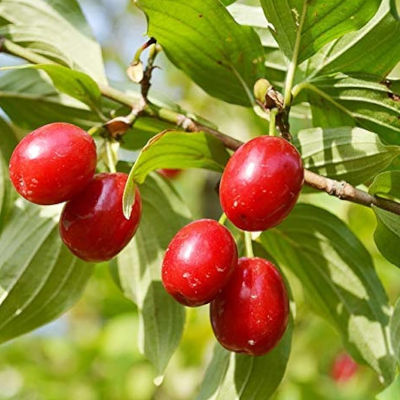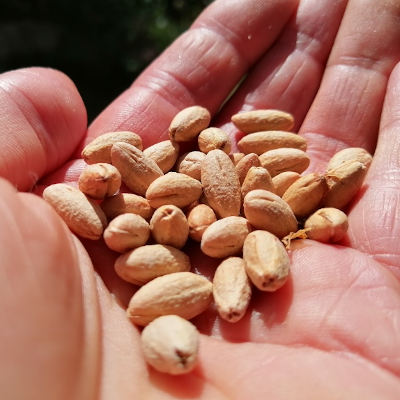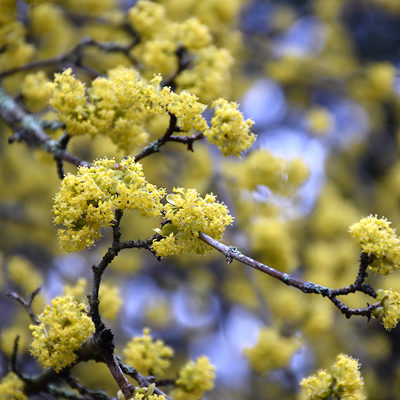Botanical name
Cornus mas
Family
Cornaceae
Details
A deciduous shrub or small tree growing 3–7 meters tall, valued for its early yellow flowers (August–September in the southern hemisphere) and tart, vitamin C-rich red fruits (ripening February–April). Its fruits are versatile, used fresh or in jams, syrups, and traditional medicine, while its hard wood is valued for crafting. Low-maintenance and multi-functional, it’s ideal for sustainable garden systems.
Propagation is by seeds (requiring cold stratification), cuttings, or layering. In a forest garden, it functions as an understory tree, providing early nectar for pollinators, edible fruits for humans and wildlife, and leaf litter that enriches the soil.
Diameter
4.00
Forest layer
low-tree
Height (m)
5
Flowers
Yellow
Edible
Fruit / berries
Perennial
Shade / Sun
Sun to part shade
Soil type
Most types, prefers moist site
Wind tolerance
Strong winds




